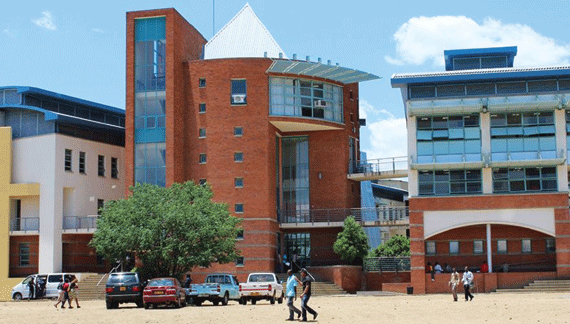
THE Institute of Development Studies (IDS) at the National University of Science and Technology (Nust) yesterday cautioned legislators against rushing to implement costly mechanical methods in an attempt to eradicate a poisonous cactus rosea weed that is wreaking havoc in Matabeleland South. NQOBILE BHEBHE CHIEF REPORTER
MPs have been seized with debate on the poisonous opuntia fulgida, which is now known in the scientific community, as cylindopunta fulgida varfulgida.
They proposed the cutting down and burning of the plant saying about $2,5 million was needed for the task.
According to the parliamentarians, $2 514 418 would be required, of which $185 750 would be for purchasing equipment while the balance would be for food. However, Nust director of information and public relations Felix Moyo told journalists caution was needed in dealing with the plant.
Moyo said the IDS was now inundated with inquiries on its research on the plant, raising suspicion about the motive.
“There is now a rush to use the $2,5 million, which is wrong; it’s the truth,” he said.
“The nation should know that it would be more expensive if the mechanical method was used.
“Villagers will inhale the smoke and seek medical attention. People now have wounds after being pricked and we don’t have a cue for it.
- Chamisa under fire over US$120K donation
- Mavhunga puts DeMbare into Chibuku quarterfinals
- Pension funds bet on Cabora Bassa oilfields
- Councils defy govt fire tender directive
Keep Reading
“We are saying parliamentarians should apply caution. The institute is now getting countless inquiries on our research and it is because millions of dollars are now involved.”
Moyo added that people should not be “lining up pockets instead of coming up with lasting solutions. Actions should be backed by proper research”.
However, the researchers said they had cordial working relations with Parliament.
Asked how much of the $2,5 million should be set aside for research, IDS researchers said a clear budget would be known by next week.
To date, the plant has spread over 3 000 hectares in Matabeleland South. It leads to the development of wounds that become septic in animals if not treated.
The cactus plant, also known as the devil plant, can kill livestock and people if victims do not get medical attention.
The effects of the plant gained prominence after Nust researcher and lecturer Buhle Francis (pictured) was credited by the National Assembly for her role in shedding light on the plant.
Francis has won international awards for researching on the invasive plant that has spread over 3 000 hectares in Matabeleland South.
She is advocating for biological control.
“Biological control is the way to go. We should be further researching how dactylopius tomentosus is effective.
“The problem is terrestrial. South Africa introduced a host specific insect, coclineal and it ate all the plants,” Francis said.










